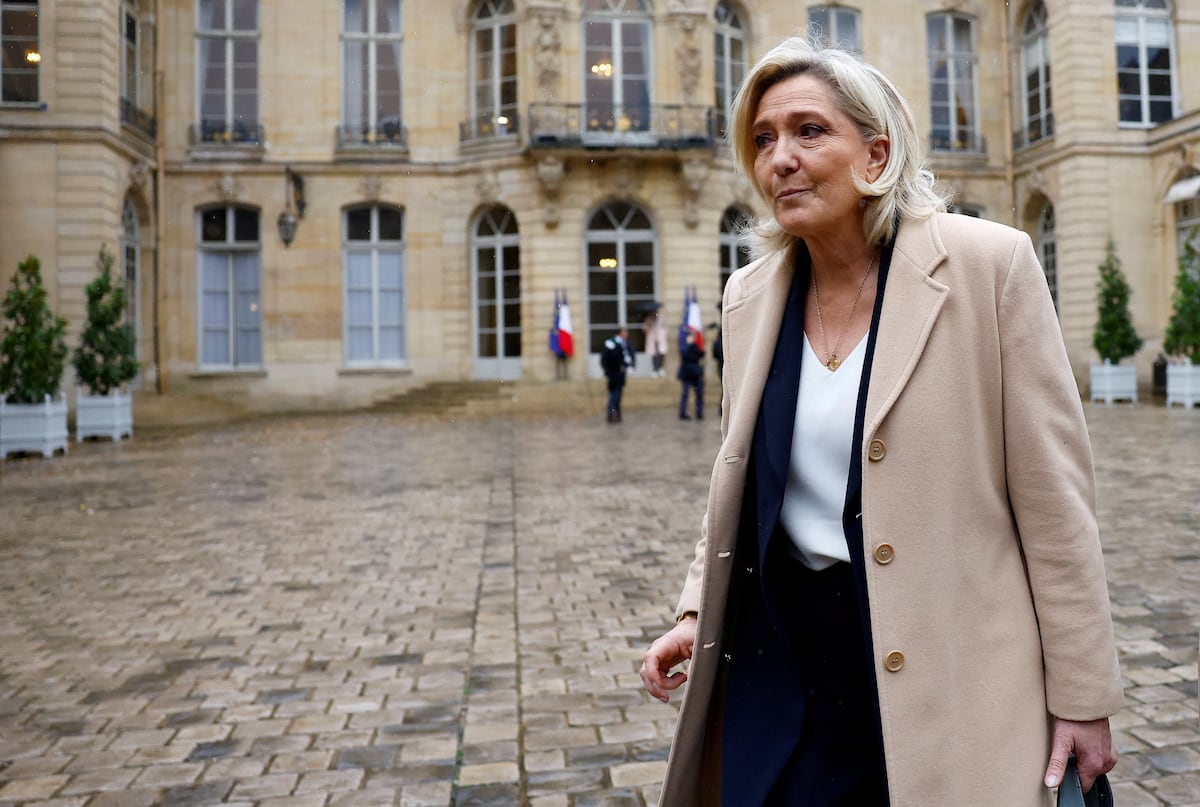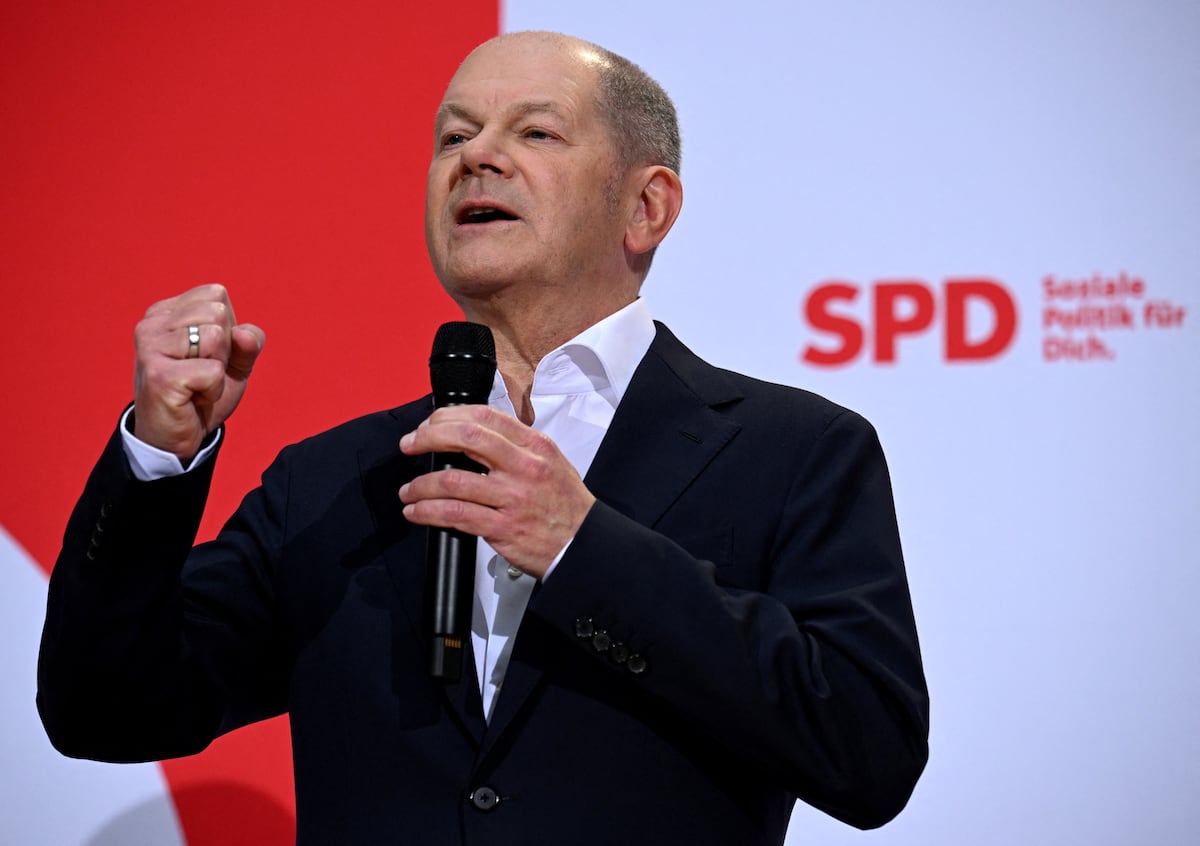The French Prime Minister, Michel Barnier, has been balancing for weeks in Parliament and in his own Executive to satisfy all the factions that keep him alive in the drafting of the budget law. But the State accounts are the place where political ideology can best be seen, and at this moment there are too many sensitivities to be able to satisfy some without angering others. After a few weeks of silence and resolving her judicial problems, Marine Le Pen, leader of the far-right National Rally (RN), has decided to go on the attack and is seriously threatening to vote on a motion of censure against Barnier.
Le Pen released the notice last week. And this Monday, after meeting for an hour and a quarter with Barnier himself in Matignon, the seat of Government, he insisted on the same idea. “My position has not changed. Not even the Prime Minister’s, it seems. There are very few qualities in this budget and very little time for the Government to improve the qualities and reduce the defects,” he said with some sarcasm, while specifying that it had seemed to him that Barnier was not moving from his positions. He was referring to the RN’s red lines, especially “the increase in taxes on electricity”, which Le Pen considers “inadmissible”. According to the RN leader, her group would vote in favor of censuring the Government if the budget remains “as it is.” “Le Pen is completely irresponsible. It plays with the future of this country,” criticized Gabriel Attal, former prime minister and leader of the Macronist universe that keeps the Executive alive.
The lack of a majority in Parliament, if nothing is remedied, will cause Barnier to use constitutional provision 49.3 to bypass the National Assembly and approve the budget in December. The parliamentary violence of the measure would increase the chances of censure occurring, which would require the extreme right and the left to agree and vote together. The current fragmentation of the Assembly does not allow many alternatives. The New Popular Front (NFP) — the alliance made up of Jean-Luc Mélenchon’s France Insoumise (LFI), socialists, communists and environmentalists — won 193 of 577 deputies, but fell far short of the absolute majority of 289. The presidential bloc , made up of three center and center-right parties, obtained 166; and the far-right National Rally (RN), 126. Le Pen’s party, despite finishing third in that bloc scheme, became the arbiter of the contest when President Emmanuel Macron did not find a stable absolute majority in Parliament.
The reality, beyond the staging of the disagreement, government sources point out, is that it is in no one’s interest now to overthrow Barnier’s Executive. After the legislative elections last July, all parties have been affected or sufficiently disorganized to think about facing a new electoral process (although the law does not allow it to take place for another eight months). Le Pen herself is in the middle of a storm that could disqualify her from politics before the end of the year (the Prosecutor’s Office has requested it). Macronism and its Renaissance party are breaking down and looking for a new leader – Attal seems the best placed as he lacks an internal rival – to face the new era after the departure of the founder and leader of the movement. And the left of the NFP is not clear about its unity, especially from the Socialist Party, in search of a new leadership that distinguishes its positions from those of Mélenchon’s LFI.
“It won’t be chaos”
At the end of the meeting with Barnier, Le Pen minimized the consequences of a possible rejection of the budget, refusing to give in “to that little melody that consists of saying that if the budget is rejected, if there is censure, it will be dramatic, it will be chaos.” …Last year’s budget will be applied. It is less bad than this, since there are fewer taxes that will fall on the popular classes and the middle classes,” he stated. In addition to the budget issue, the two politicians discussed immigration, the possible reform of the electoral system to make it proportional, and agriculture. But according to the RN leader, “there was no news about any of them.”
Macron, completely disappeared from the national scene since he appointed Barnier as prime minister and he asked him to step aside, requested from Argentina last week that Parliament seek the stability of France above particular interests.
The French, despite the chaos caused by the latest dissolution of the Assembly, seem to prefer turbulence. According to an Ipsos survey for La Tribune du dimanche53% of citizens want to see the Government fall. And Barnier’s popularity also drops in another IFOP survey for Le Journal du dimancheto 36%, compared to the 45% he had at his appointment at the beginning of September. Some believe that a fall of the prime minister and the subsequent electoral repetition would lead to Macron resigning from office, a historical fact that the Elysée rules out for now.







